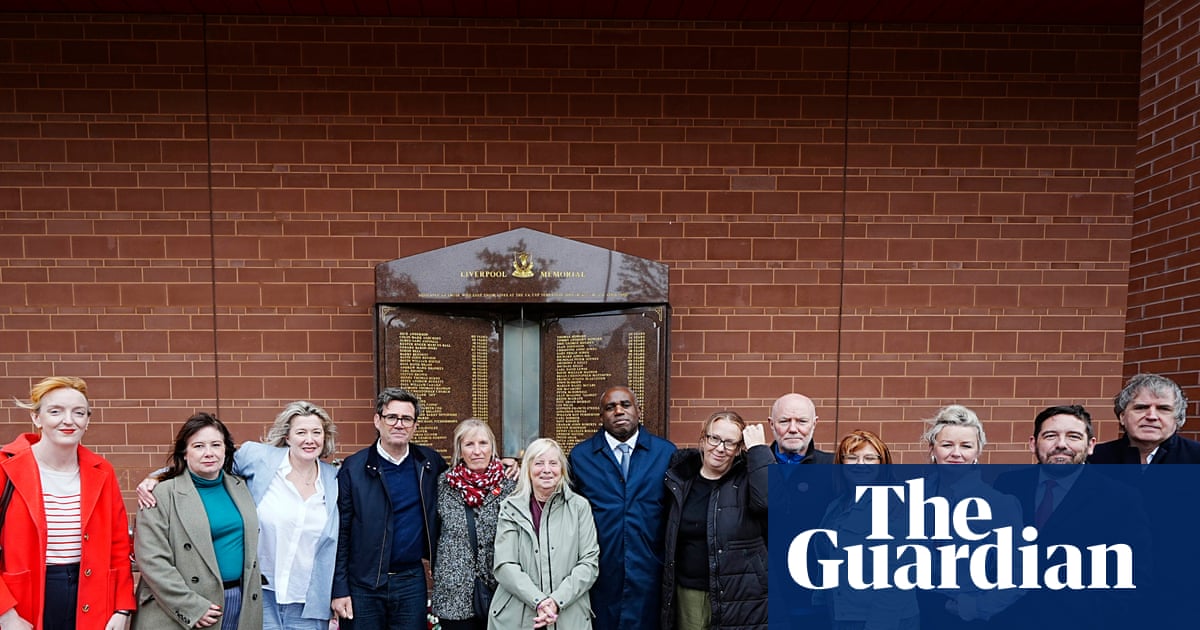
The journalist perched on a stool in a corner of the bedroom, pen in hand, ready to jot down the most intimate details of our sex lives.
Her name was Peggy Orenstein, and she was writing a book about girls and sex. As a 20-year-old college sophomore, I apparently still qualified as a girl, and I was having sex. So, one night in late 2013, I agreed to let Orenstein hang out at my sorority house.
We swanned about the tiny bedroom, dodging piles of clothes and admiring one another’s earrings in the mirror, while Orenstein quizzed us on boys and parties and relationships. She listened attentively as we detailed the precise alchemy of a “going-out outfit”. (You could wear a tight skirt to show off your legs or a tight shirt to show off your boobs, but never both. The goal was to look available, not like a sure bet.) I could feel her eyes taking in all the pink in the room: the hot pink carpeting, the pale pink walls.
As we continued to answer her questions, I could sense her slow deflation. We weren’t having sex often enough, with enough boys. Frankly, we weren’t slutty enough. (There’s no such thing as a slut, but I was years away from realizing that.) After Orenstein left, I couldn’t shake my suspicion that we had been drawn into playing a rigged game. While it was clear that Orenstein did not want to claim that young women were immoral for sleeping around, I felt like she had wanted to frame my sorority sisters and me as victims of “hookup culture”, the 2000s moral panic that posited that millennials were having sex so casual that it bordered on indifferent.
Like practically every other adult we encountered, she wanted to prove that we were doing sex wrong.
I came of age in the 2000s and early 2010s: a time when journalists, politicians and other miscellaneous moralists were consumed by the idea that by losing our virginities so unceremoniously, young people were losing themselves. Shows such as Gossip Girl and Skins showed teenagers having sex so gymnastic they threw each other into walls, and books with titles like The End of Sex: How Hookup Culture Is Leaving a Generation Unhappy, Sexually Unfulfilled, and Confused About Intimacy filled bookshelves. The New York Times ran numerous articles bemoaning how hookup culture was turning orgasms into an endangered species.
A lot of the discourse about hookup culture, however, conveniently skirted statistics that revealed many young millennials weren’t having that much sex. In 2011, the Centers for Disease Control and Prevention (CDC) asked more than 15,000 high school students whether they had ever had sexual intercourse. More than half the millennial respondents had not. A sizable chunk of millennials did not have sex in college either. One 2012 study discovered that a fifth of female college seniors reported still being virgins, while even a New York magazine story that called campuses “great drunken bacchanals” found that, in its poll of more than 700 college students, almost 40% were virgins. A separate survey even found that only about a third of college students said they’d had intercourse during a so-called hookup.
Millennials were in fact having sex later and less than past generations, including the generation behind the screeds about how hookup culture was killing intimacy.
Now, us millennials wandering into our 30s and 40s are doing exactly what media outlets thought we would never do: getting married and having babies. Yet the American urge to tell a story about how young people have sex – and especially how they’re doing it wrong – hasn’t disappeared. It’s just been transplanted on to those mysterious creatures known as gen Z.
Today, we tell a different story about gen Z and sex: rather than having too much impersonal sex, they are not having sex at all. It’s called the “sex recession”.
I’ve spent the last several years traveling the country and interviewing more than 100 teenagers and twentysomethings about their sex lives. It is true that they are having even less sex less than millennials, but they are not uninterested in sex. Instead, many have understood, from an early age, something that eluded past generations: that sex, its consequences, and control over both are political weapons. They’ve experienced this firsthand, as sexual conservatives have pushed for policies that leave them scared of sex: thanks to the 2022 overturning of Roe v Wade, for example, 16% of single gen Z adults are more afraid to date. Yet at the same time, gen Z is also actively resisting older definitions of sex and rejecting traditional gendered expectations.
Even though many haven’t actually gotten laid, gen Z might be the most sexually progressive generation in history.

The so-called sex recession
When I started college, in 2012, I felt like a virginal freak. Rather than warn me off of sex, the pearl-clutching over hookup culture had left me desperate to have it.
Yet had I come of age in the late 2010s and 2020s, I would have fit right in. In 2021, only 30% of gen Z respondents told the CDC they’d had sexual intercourse – a 17% drop from when I was in high school. In a 2022 survey conducted in part by the Kinsey Institute, one in four gen Z adults also said they had never experienced partnered sex. Stunningly, even masturbation is somehow on the decline among adolescents.
“Why Are Young People Having So Little Sex?” a headline in the Atlantic wailed in 2018. After the pandemic, a New York Times opinion essay linked young Americans’ poor mental health and stunning levels of loneliness to their lack of sex. “Have More Sex, Please!” the headline pleaded.
It’s not just that gen Z is believed to be sexless – they are also allegedly opposed to sex. According to the internet, gen Z is full of “puriteens”, which Urban Dictionary defines as an “(almost always) young person on the internet who thinks that the internet has to conform to being entirely SFW”, or safe for work. These puriteens and their supposed concerns – age gaps between partners, displays of kink at Pride parades, irredeemably tilted power dynamics in relationships that might have been once perceived as equal – typically hail not from the political right, where reservations about sexual exploration may seem more naturally at home, but from the left. News story after news story has worried over gen Z’s apparent turn away from “sex-positive” feminism and toward “sex negativity”.
Gen Z is so terminally online, so addicted to pathologizing normality through therapy-speak, and speeding so far to political extremes that they’ve lost their ability to navigate the nuances of human relationships. Further addled by the isolation of the pandemic, they’ve thrown their hands up and escaped back into their bedrooms-cum-bunkers alone, their faces aglow with blue light.
Or so the lore goes, anyway.
In reality, not only are young Americans still horny, but many gen Zers have been spurred to extraordinary activism in support of sexual progressivism.
For much of the last quarter century, most Americans ignored the erosion of sexual and reproductive freedoms, thanks in no small part to a queasiness about the very existence of sex, especially among the young. Now, young people are fighting over many of the very same rights that progressives and conservatives warred over in the 1960s and 70s – and some new ones, too, as gen Z is the most diverse generation yet in terms of race, ethnicity, gender identity and sexual orientation.
More than 60% of 18- to 29-year-olds lean left, and around a quarter of gen Z identify as LGBTQ+ (depending on whom you ask and how you ask the question). They are also increasingly secular. Gen Z women might just be the most progressive cohort ever documented in US history; since 2008, they have veered hard to the left on issues such as the environment, gun control and abortion. Meanwhile, 56% of young male voters backed accused sexual predator Donald Trump in the 2024 election. But while they may be voting Republican for reasons that have both mystified and alarmed experts, since 2008 young men have become more liberal, not less, on almost every issue, including abortion and same-sex marriage.
Gen Z grew up watching and attending the kind of mass protests that break out only once in a lifetime, such as the Women’s March of 2017 and the Black Lives Matter protests of 2020, and as citizens of the borderless community of the internet, with its endless depictions of sex. They have an unparalleled ability to infuse that sex with political meaning. Compared to other generations, gen Z adults are more likely to have attended a rally, volunteered or posted online about a social issue that mattered to them. When Trump defeated Harris, left-leaning young people immediately converted their political fury into personal action – namely, by proposing a sex strike in the vein of the feminist South Korean 4B movement. “GIRLS IT’S TIME TO BOYCOTT ALL MEN!” one TikTok creator wrote in a video with 4m views. “YOU LOST YOUR RIGHTS, AND THEY LOST THE RIGHT TO HIT RAW!”
For many members of gen Z, it’s not enough to expand access to things like sex education, birth control and sexual assault resources. They also seek to dismantle and reimagine traditional concepts of sex and desire so that they no longer feel so entrenched or suffocating.
As gen Z revolutionizes sex, they are revolutionizing society’s longstanding expectations of gender, too. By the light of these expectations, women should be the gatekeepers of sex, forever pushing off men, who are unfailingly horny; any fallout from sex is the woman’s fault; she should bear the trauma, stigma, pregnancy, childrearing or any of the other countless consequences that sex has had through the millennia. (Forget about folks outside of the gender binary.) Casting off these expectations is, I’ve found, a key part of young people’s sexual progressivism.

What is sex, anyway?
Sexually progressive young people tend to take a more inclusive view of sex. Take, for example, losing your virginity, which is traditionally defined as having penis-in-vagina sex for the first time.
Although my gen Z interviewees usually said they had once believed in that definition, many also said their views evolved as they got older. Frequently, their realization of their own queerness or their interactions with LGBTQ+ peers had led them to reassess how they saw sex.
“Definitely having sex, like penetrative sex with a man – that was [the definition of] virginity [loss] to me. And so I graduated high school thinking, ‘Oh my God, I’m a virgin in college. This is the worst thing ever,’” recalled Molly, a 21-year-old Texan. But as she surrounded herself with more people who identified as LGBTQ+, she stopped fixating on it so much and eventually came out as queer. She hasn’t had intercourse with a man – she’s no longer sure she’s even attracted to them – but she has had sex with a woman, “depending on the definition”.
Molly also began to reframe her sexual experiences from high school. “I wasn’t having penetrative sex with my boyfriend in high school, but we were having oral sex,” she said. “That also was sex.”
It was the LGBTQ+ interviewees who, rather than overly fixating on virginity, most often felt at peace with their sexual status, regardless of whether they had had it, were having it, or none of the above. “It’s a weird social concept that’s very tied to purity culture,” Clare, a queer 19-year-old from Montana, said of virginity. “I always felt a little weird in high school because I’d never been in a relationship. It felt like a thing I needed to do.”
She still has not had sex. But now that Clare is in college, she’s realized, “no one actually cares that much. And if it’s something I want to do for me, then sure. But it’s not like a box you need to check off on the ‘normal teenager checklist’.”
In 2014, in one of the first studies to examine LGBTQ+ people’s thoughts on virginity loss, people were split: many thought penetration was key, but others believed virginity loss could be a multistep event. Maybe you lose your virginity through heterosexual sex, before losing it again through homosexual sex. Or maybe you lose it a little more each time you experiment with a new sex act.
Generally, though, there was a sense that virginity didn’t matter all that much, that it was a heterosexual concept shoved down LGBTQ+ people’s throats. Having sex for the “first time”, knowing what to do with someone else’s body – that mattered. But, researchers noted, participants didn’t use the term “virginity” unless prompted. It was just not part of their vocabulary.
I admire that focus on sexual exploration rather than achievement.
All this raises a more fundamental question: what is sex? In my interviews, people agreed that you can’t masturbate your way out of being a virgin; there had to be another person (or persons) present. But they often struggled to come up with an answer when I asked them to define what sex looks like to them now. Even straight people, other forms of sex have begun to count more frequently. Most college students believe anal intercourse constitutes losing your virginity, despite a longstanding belief that anal can be a way to get laid while staying a virgin. A majority of young people say oral sex counts, too.
“It’s like a vibe,” said Jessie, a queer, non-binary 19-year-old from New Jersey, their voice shivering with innuendo. “I’m using so many words to try to describe this, because as I’m saying it to you, I’m also trying to process it in my head. What does it actually mean? I don’t know!”
My favorite definition of sex came from Clare. “What, to you, would count as sex?” I asked.
Clare thought about it. “If there’s pants on the floor,” she said. She paused. “Intentionally.”
The intention makes the difference. It’s sex because I say it is. Sex is always whatever we say it is. As individuals, having sex or not having sex doesn’t need to matter all that much if we say it doesn’t.
However, politicians and pundits are deeply invested in crafting narratives around how young people have sex – and, in the case of gen Z, it is the right that benefits most from crafting a narrative that the young are all hapless virgins.

The conservatives in our bedrooms
As young Americans navigate unprecedented access to sex thanks to the internet, they are simultaneously and increasingly at the mercy of activists, politicians and institutions that have razed comprehensive sex ed, pornography, information about LGBTQ+ identities and tools to combat sexual assault. Sexual conservatism aims to make it difficult and dangerous to have any kind of sex that is not heterosexual, married and – as it seeks to limit access to abortion and birth control – potentially procreative. It also tries to enforce specific ideas about gender, about what makes a man and what makes a woman. It wants to turn the US back to a pre-internet age – to, say, the 1950s, before the sexual revolution and second-wave feminism of the 1960s and 70s: a time when a (white) man was expected to have a (white) wife, two and a half (white) kids, and a suburban home on a single salary.
Amid pronatalist fears over the falling US birth rate (especially among white women), the sex recession enables sexual conservatives to portray sexual progressivism as an existential threat, as they argue that it has led to a breakdown in gender roles, preventing men and women from pursuing relationships and, more importantly, families. “Our people aren’t having enough children to replace themselves. That should bother us,” JD Vance once told a conservative conference.
Sexual conservatism is not anti-sex. (White evangelical churches that oppose premarital sex have, for example, long urged their married members to go crazy in the bedroom.) Instead, it uses sex as a cudgel to force Americans into a way of life where some types of people have more power – but everybody has fewer choices. And, over the past 25 years, this movement has steadily amassed power to the point that it has dramatically restricted young Americans’ sex lives. Roe v Wade provided a sneak peek into how this movement can reshape sex: 13% of gen Z and 11% of millennials have said its fall has led them to have less sex. It was just the beginning.
This is not just a matter of being able to bang people without fear of consequences. Making young people afraid of sex, afraid of having the wrong kind of sex, afraid of even being perceived to be interested in one another – all of that robs them of their ability to pursue pleasure, self-knowledge and connection. It places relationships of every kind under a microscope and turns them into a potential avenue for persecution. It undermines their right to their own bodies, at a time when individuals are just discovering what their bodies can do. It denies them a full life.
Since that night in my sorority house, almost everything about how young Americans have sex has changed. We are post-#MeToo, post-pandemic and post-Roe. Kink has gone mainstream. And I have come to understand that the battle between sexual conservatism and progressivism is the defining feature of young Americans’ sex lives. This battle is intragenerational – as straight and cisgender young men appear to be diverging sharply from their female and LGBTQ+ peers – and intergenerational. The triumphs of sexual conservatism will affect us all, regardless of age.
In short, we’re living through nothing less than the second coming of the sexual revolution. Pun intended.
Extracted from The Second Coming: Sex and the Next Generation’s Fight Over Its Future by Carter Sherman, published by Gallery Books, an Imprint of Simon & Schuster LLC on 24 June 2025. Copyright © 2025 by Carter Sherman

.png) 2 months ago
38
2 months ago
38

















































